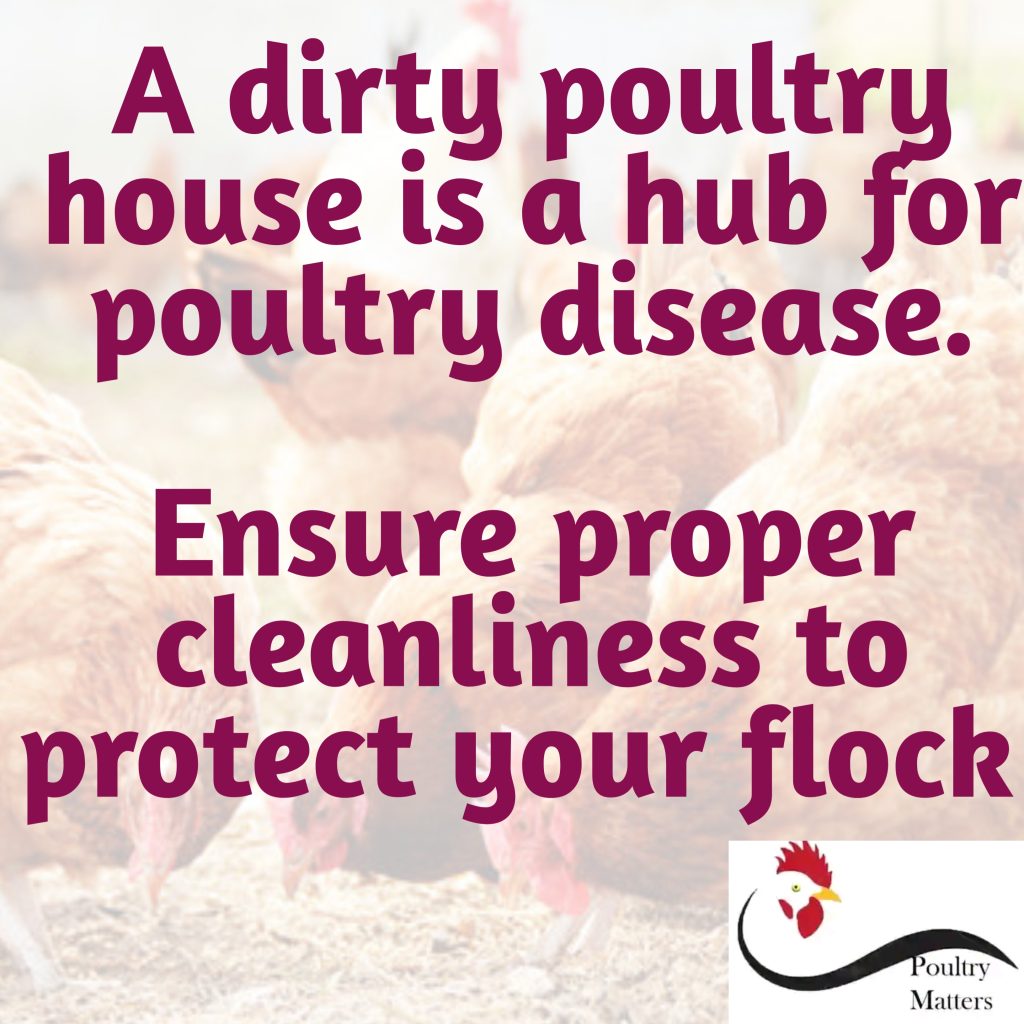Hygiene
Hygiene in simple words can be defined as the practice of keeping oneself, surroundings and equipment clean in order to maintain health and prevent the spread of diseases. Basically, hygiene involves all measures taken to control germs, dirt and harmful agents that can cause infections.
In general terms, hygiene includes personal cleanliness, safe handling of food and water, proper waste disposal and maintaining a clean environment. However, hygiene in poultry business can be considered as the careful cleaning, disinfection and management of the poultry house, equipment, feed and water systems to ensure the birds remain healthy and productive.
Hygiene is one of the most critical pillars of poultry farming. It directly influence the health, productivity, and profitability of the poultry flock. Proper hygiene in poultry business not only prevent the spread of infectious diseases but also enhance the efficiency of production by –
- Reducing mortality occurrence among the flock
- Improve feed conversion
- Ensure high-quality meat and egg output.
Direct impact of hygiene on your flock and overall business.
1. Disease Prevention and Control
Poor sanitation provides an environment where pathogens such as bacteria, viruses, and parasites can thrive. By maintaining a clean and disinfected poultry house, farmers significantly reduce the risk of common poultry diseases like Newcastle disease, Infectious Bursal Disease (IBD), Avian Influenza and coccidiosis. Effective hygiene practices, such as, regular cleaning of pens, disinfection of equipment and controlled access to poultry houses — act as the first line of defense against disease outbreaks
2. Improve flock welfare
Clean housing, as well as, access to safe water and feed create a stress-free environment for birds. Stress is known to weaken the immune system, making flocks more vulnerable to infections. Hygienic conditions ensure that birds remain comfortable, healthy and less exposed to harmful pathogens, thereby improving welfare condition, growth rates and overall productivity.
3. Feed and water safety
Feed and water are common sources of contamination in poultry farms. Mouldy feed, dirty feeders and contaminated water lines can introduce toxins and pathogens to the flock. By ensuring hygienic storage, proper handling and regular cleaning of feeding and watering systems, farmers safeguard the nutritional quality of feed and prevent digestive and metabolic disorders in birds.
4. Enhance biosecurity
Hygiene is a cornerstone of effective biosecurity programs. Practices such as footbaths at entry points, restricted access to poultry houses, proper disposal of litter and dead birds, as well as, thorough disinfection after each production cycle help minimize the introduction and spread of diseases. Without strict hygiene, even well-designed biosecurity protocols may fail.
5. Reduce cost on healthcare
Maintaining hygiene reduces the need for costly veterinary interventions and minimizes production losses caused by diseases and poor performance. This result in higher profit earning for the farm.
6. Optimize output from the utilization of farm resources
A clean environment promotes better feed conversion ratio (FCR), faster weight gain in broilers, higher egg production in layers, therefore leading to output optimization and overall farm profitability.
7. Consumer Confidence and Food Safety
Consumers increasingly demand safe and healthy poultry products. Farms that prioritize hygiene produce meat and eggs with minimal microbial contamination, consistently, build trust in the marketplace. This not only protects public health but also enhances the reputation and market competitiveness of the poultry farm and business.
Daily hygiene checklist
Daily hygiene checklist helps farmers maintain a clean and disease-free environment for their flock. It involves routine practices such as cleaning feeders and drinkers, providing fresh water, removing wet or contaminated litter, disinfecting entry points and checking bird health.
Maintaining good hygiene does not have to be complicated. To make it easier for you, I have created a simple Daily Hygiene Checklist you can follow on your farm.
Click the link below to access it — it is a practical tool that will help you keep your flock healthy, reduce costs on disease treatment and boost productivity.
https://drive.google.com/file/d/1Ijbvt6juKJEsaFsTliXYTz1PUrA336UG/view?usp=sharing
NOTE – Pasting this checklist visibly in the poultry house helps workers follow it consistently.
Conclusion
Summarily, hygiene in poultry farming is more than just keeping the environment clean — it is a comprehensive management practice that supports disease prevention, improves productivity, ensures animal welfare and boosts business profitability.
A hygienic farm is the foundation of sustainable poultry production.
Healthy flock start with a clean environment. Make hygiene a top priority on your farm today and
- Protect your flock
- Cut down costs
- Earn better profit
- Sustain your farm
Read more https://poultrygist.com.ng/2024/10/biosecurity-in-poultry-farming/

